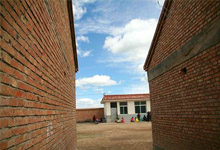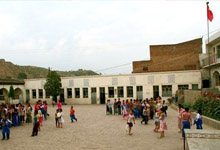





Brief introductionof REAP:
The Rural Education Action Program (REAP) is an international education research organization that aims to contribute to sound education, health and nutrition policy in China. The co-founders of REAP includes Center for Chinese Agricultural Policy at CAS, Freeman Spogli Institute at Stanford University, Northwest Socio-economic Development Research Centre (NSDRC, Xi’an),and a number of other organizations, corporations and governmental agencies. REAP’s goal is to assist students in China’s less developed areas to access to quality education, enhance human capital accumulation, and to help them out of poverty for the sustainability of China’s economic growth.
1.Teacher Performance Incentives Project
In order to compare the impact that teaching performances have on the study ability of rural students and students with learning difficulties, and find the most suitable performance incentive plan for rural schools in China, Yifang Foundation made a donation to REAP at Stanford University in August 2013, aiming to explore a best way to provide performance incentives to rural teachers in China.
By implementing this project, REAP, NSDRC and their local partners were augmented in capacity, which would be sustainably ameliorating the education level in rural China accordingly. REAP would advise policymakers with their research-based evidence to help government assess the effectiveness of their incentive policies. REAP also provided training to government officials, headmasters and teachers, who were also involved in the design of incentive activities, on the advantages of performance accumulation and how data collection can improve the students’ learning. Additionally, they collected large amount of actual and high-quality data and feedback on school management, teaching, and parent-student participation (and how this participation impacted the students’ learning). At the end of the program, REAP would submit an intervention plan on how to change the way how students learn, promote education equality, and effectively use governmental resources.
2. Research on Effectiveness of Teacher’s Training
Since 2010, the central government has spent around 1billion dollars per year on trainings in order to improve the quality of rural teaching. Many non-profit organizations and foundations are also providing training for teachers in creative forms. However, most trainings in rural areas are neither active nor sustainable. So far, the trainings have shown little sign of effectiveness on improving students’ learning and overall teaching quality. REAP at Stanford University has planned to spend one year (September 2014 to December 2015) exploring an effective training framework that informs the policy-making in China to ensure the efficiency of trainings and improve the teaching quality in rural China. In this research, REAP will investigate and study on the programs carried out by Henan “ZHENYU Program of Training Primary School Teachers in Rural Area”, non-profit organizations and local governments. The findings will be summarized into a report that advises the best training plan. This plan will be submitted to provincial and national decision-makers, and hopes to enhance the quality of training and the efficiency of the training input through policy advocacy way.
Yifang Foundation, Ford Foundation and Xu Family Charitable Foundation are the donors of this research.
